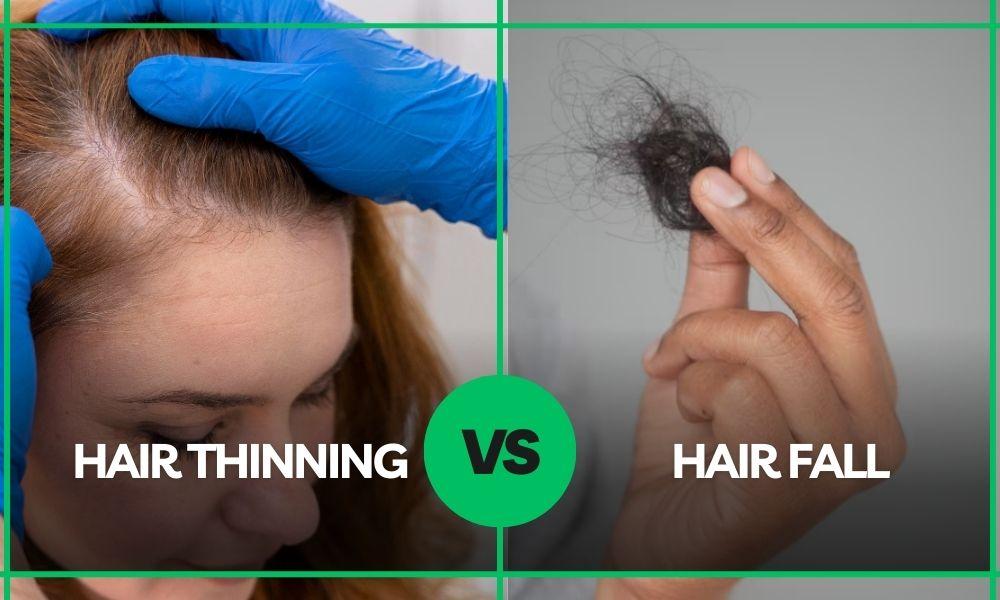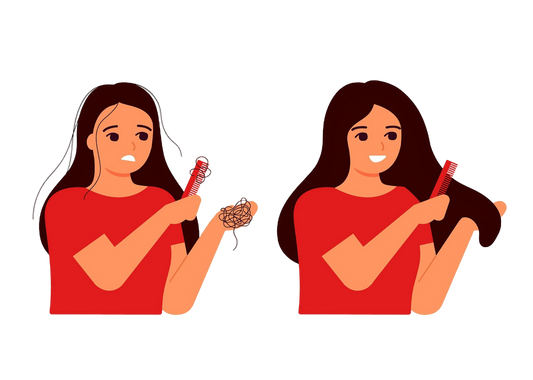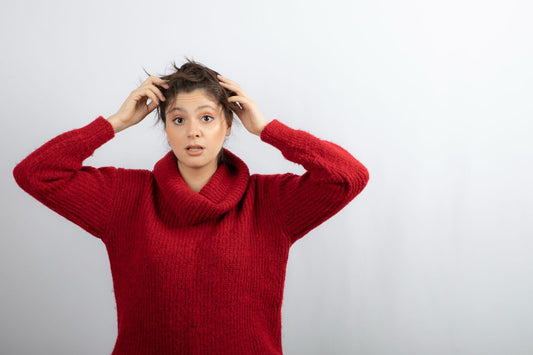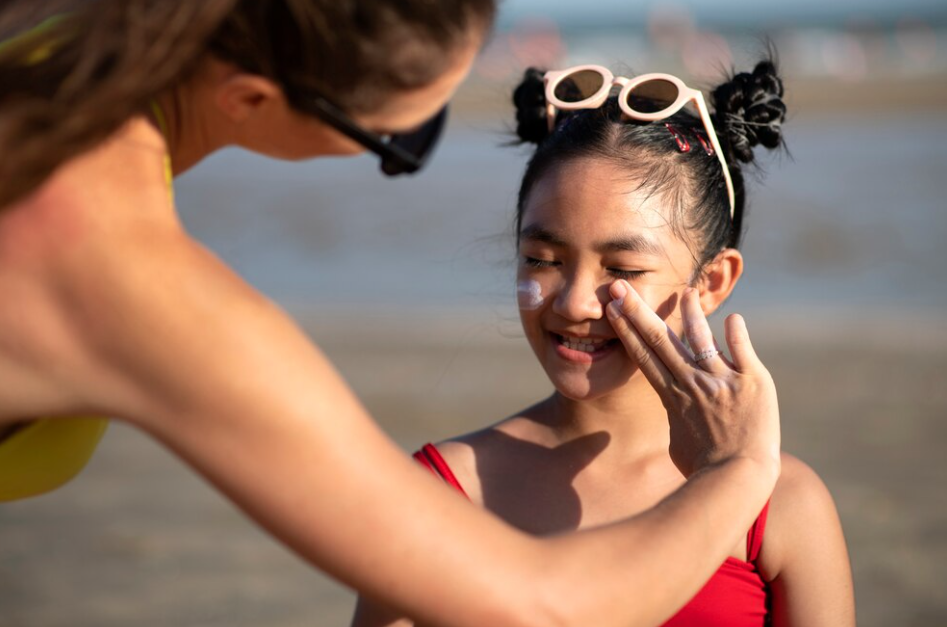Articles

Skin Care
Hair Thinning VS Hair Loss
Hair Thinning vs. Hair Loss: Understanding the Difference
Understanding the difference between hair thinning and hair loss is crucial for proper hair care. Many people confuse these conditions, but they are distinct issues with different causes and treatments. Let's explore hair thinning vs. hair loss to help you identify and address your specific hair concerns.
What is Hair Thinning?
Hair thinning refers to the gradual reduction in hair density. Unlike hair loss, thinning hair means you still have hair growing, but it is less dense. Factors contributing to hair thinning include:
- Genetics: Family history of thinning hair.
- Hormonal Changes: Such as during menopause or pregnancy.
- Nutritional Deficiencies: Lack of essential vitamins and minerals.
- Stress: Physical or emotional stress can impact hair health.
Solutions for Hair Thinning:
- Use Thickening Shampoos and Conditioners: Opt for products specifically formulated to add volume and thickness.
- Improve Nutrition: Include foods rich in vitamins like B vitamins, iron, and zinc. Supplements can also help if dietary intake is insufficient.
- Manage Stress: Practice relaxation techniques such as meditation, yoga, or regular exercise.
- Scalp Treatments: Consider scalp massages with essential oils like rosemary oil or coconut oil to stimulate blood circulation and promote hair growth.
What is Hair Loss?
Hair loss, or balding, involves the shedding of hair from the scalp. This can be temporary or permanent and can result in partial or complete baldness. Causes of hair loss include:
- Genetic Factors: Androgenetic alopecia, commonly known as male or female pattern baldness.
- Medical Conditions: Such as alopecia areata, thyroid disorders, or scalp infections.
- Medications: Certain drugs can trigger hair loss.
- Trauma: Physical damage to hair follicles.
Solutions for Hair Loss:
- Medical Treatments: Medications like Minoxidil or Finasteride can slow hair loss and, in some cases, promote regrowth.
- Hair Transplant Surgery: A permanent solution for severe hair loss or balding areas.
- Laser Therapy: Laser therapy can help stimulate hair follicles and promote growth.
- Scalp Care: Maintain a clean and healthy scalp with gentle shampoos and avoid harsh chemical treatments.
Hair Shedding vs. Hair Loss
Hair shedding is a normal part of the hair growth cycle. It’s normal to shed between 50-100 hairs per day. However, excessive shedding can lead to noticeable hair loss. Factors influencing hair shedding include:
- Seasonal Changes: Hair shedding often increases in the fall.
- Health Changes: Illness, surgery, or weight loss can cause temporary hair shedding.
- Lifestyle Factors: Poor diet and stress can lead to increased hair shedding.
Solutions for Excessive Hair Shedding:
- Balance Your Diet: Ensure you’re getting enough nutrients, particularly iron, protein, and vitamins.
- Gentle Hair Care: Avoid harsh brushing or tight hairstyles that can pull on hair strands.
- Minimize Heat Styling: Reduce the use of hair dryers, straighteners, and curling irons.
- Consult a Professional: If shedding is excessive, see a dermatologist or trichologist for a personalized treatment plan.
Thin Hair vs. Balding
Understanding the difference between thin hair vs. balding is essential for addressing your hair concerns. Thin hair means your hair is still growing but in fewer numbers. Balding refers to the complete or partial loss of hair. Treatment options vary:
For Thin Hair:
- Thickening Shampoos:Use products that add volume without weighing hair down.
- Nutritional Supplements: Biotin and other hair-supporting supplements can help strengthen and thicken hair.
- Scalp Massage: Stimulates blood flow to the scalp, encouraging healthier hair growth.
- Medical Treatment: A topical treatment that can help with hair thinning by promoting regrowth.
For Balding:
- Avimee’s Ayurvedic Hair Care Range: Incorporates natural, herbal treatments that may help in slowing hair loss.
- Minoxidil or Finasteride: Medications that can reduce hair loss and support regrowth.
- Hair Transplant Surgery: An option for those seeking a more permanent solution.
- Scalp Micropigmentation: A non-surgical treatment that creates the appearance of hair density through tattooing.
Key Differences Between Hair Thinning and Hair Loss
- Hair Thinning: Gradual reduction in hair density, with hair still growing.
- Hair Loss: Shedding leads to bald patches or complete baldness.
- Causes of Hair Thinning: Genetics, hormones, nutrition, stress.
- Causes of Hair Loss: Genetics, medical conditions, medications, trauma.
Treatment for Thin Hair:
- Use thickening products, make diet changes, and manage stress levels to promote hair growth.
Treatment for Hair Loss:
- Explore medical treatments by consulting with your dermatologist
Understanding these distinctions helps you seek the right treatment and care. Whether dealing with hair thinning or hair loss, knowing the underlying cause is the first step toward finding an effective solution. Addressing these issues promptly can help you maintain healthy hair and confidence.

 Doctor Consultation
Doctor Consultation

















